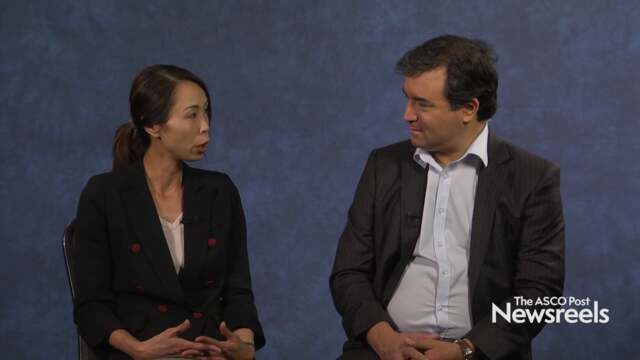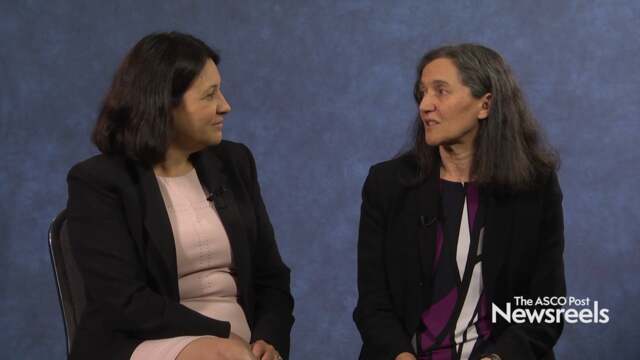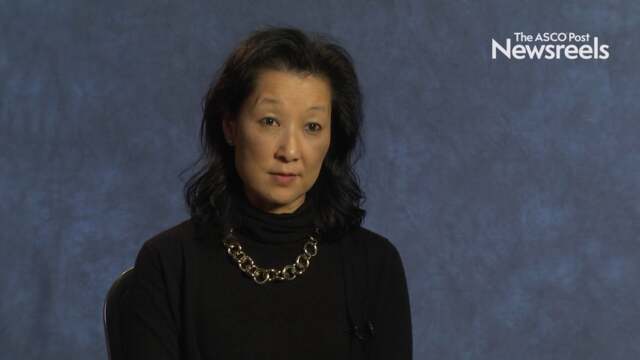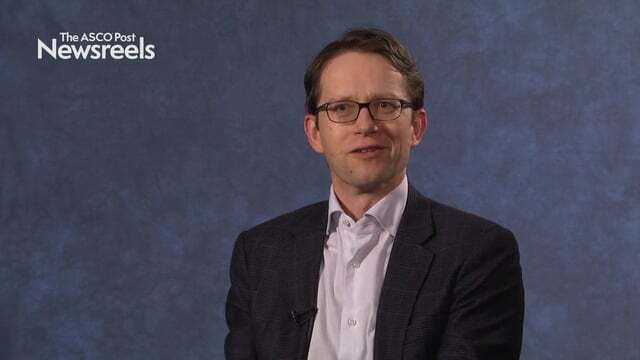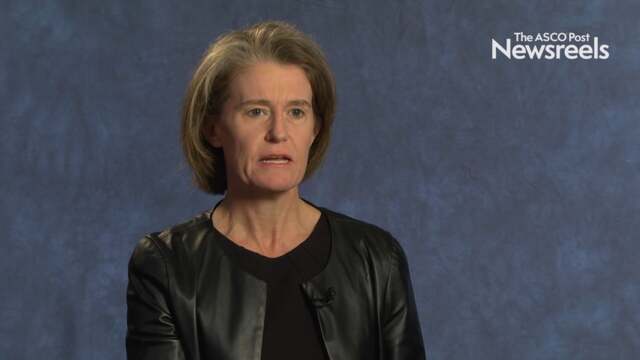Richard G. Gray, MSc, on Adjusting Adjuvant Chemotherapy Dosing: Results From an EBCTCG Analysis
2017 San Antonio Breast Cancer Symposium
Richard G. Gray, MSc, of the University of Oxford, discusses an Early Breast Cancer Trialists’ Collaborative Group meta-analysis of 21,000 women in 16 randomized trials, which showed that increasing the dose density of adjuvant chemotherapy by shortening intervals between courses or sequentially administering treatment significantly reduces disease recurrence and breast cancer mortality (Abstract GS1-01).
Sherene Loi, MD, PhD, and Roberto Salgado, MD, PhD, both of the Peter MacCallum Cancer Centre, discuss study findings on pembrolizumab and trastuzumab in patients with trastuzumab-resistant disease (Abstract GS2-06).
Vered Stearns, MD, of Johns Hopkins University, and Prudence A. Francis, MD, of the Peter MacCallum Cancer Centre, discuss two key topics in adjuvant treatment: endocrine therapy for premenopausal women with ER+ breast cancer and finding the optimal duration of treatment.
Eun-Sil Shelley Hwang, MD, of Duke University Medical Center, discusses study findings on primary endocrine therapy for estrogen receptor–positive ductal carcinoma in situ (Abstract GS5-05).
Nicholas C. Turner, MD, PhD, of The Royal Marsden Hospital NHS Trust, discusses the challenges of treating metastatic breast cancer and how liquid biopsies can serve as a guide to genetic phenotypes.
Elizabeth A. Mittendorf, MD, PhD, of The University of Texas MD Anderson Cancer Center, discusses the growing role of immunotherapy in treating breast disease, the evidence of biomarkers that may be associated with response to therapy, and the opportunities to perform robust correlative studies.
